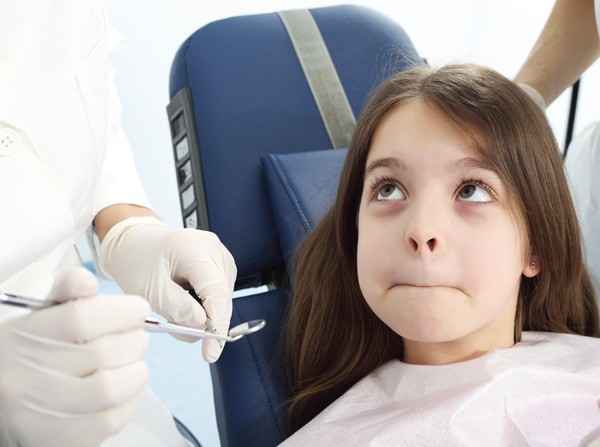Dental phobias aren’t anything new and it is suggested that around 25 per cent of people who visit the dentist regularly experience extreme anxiety (I am one of those) and exploring where the issue stems from. Why does dental phobia occur? What are the symptoms?

Dental phobia is a more severe form of anxiety and the sufferer can often become stricken with fear and become terrified at the thought of being examined and given treatment. People who have the fear are completely aware that it is irrational but cannot do much about it.
People will go to extraordinary lengths in order to avoid visiting the dentist and signs of dental phobia will include:-
v Sleep deprivation the night before a visit to the dentist
v Escalating nervousness whilst waiting in the dentists lounge
v Feelings of uneasiness when objects are placed in the patients mouth and being unable to breathe
The causes are quite explanatory:-
v People dislike pain. Pain is most likely the most common reasons that people avoid the dentist. This may have developed in earlier years from a personal experience or may have arisen from dental “horror stories” from others. Dentistry has moved on considerably and due to these advances most procedures can be carried out pain free.
v Fear of injections. People who may be afraid of needles may even be more reluctant to have one put into their gum line.
v Anaesthetic side effects. People dislike the side effects that anaesthetic gives them. Some people get dizzy, feel faint and most get the “swollen lip” and the numbness that it gives.
v Feeling helpless and having no control. Quite often, people dislike the feeling of having no control what is happening and this is made worse by being unable to see what is happening when they are being treated.
What can the dentist do?
Many dentists are now using new techniques to address the patients fear and are keen to offer encouragement and support to those that are struggling with what happens on a trip to the dentist. Several techniques are now employed to ease a patient’s fears and they include distracting the patient with relaxation techniques, playing comforting music in the surgery or even watching a movie overhead.
Overcoming dental phobia
Fear and stress can be controlled and there are a number of coping strategies that allow people to address their issues so they can condense their fear. Many people like to address their issues head-on whilst others have to focus their minds elsewhere and learn to relax the body better which allows for a calmer patient. In milder cases patients are advised to focus on a “happy place” which distracts them from what is going on around them and allows the patient to distract themselves from what is happening.
In more acute cases, some patients are recommended that they receive counselling and hypnotherapy and these methods would alter the mind in the way that it works to halt the association between fear and a visit to the dentist.
Jenny Jones writes on behalf of AXA PPP healthcare

